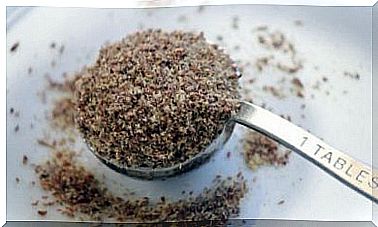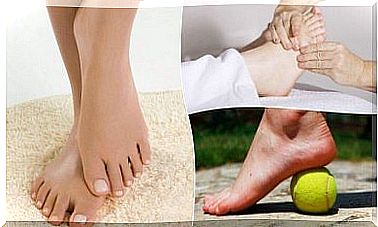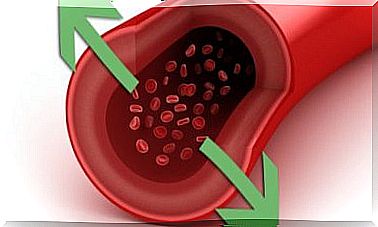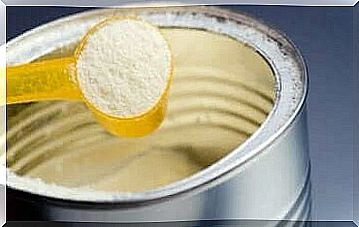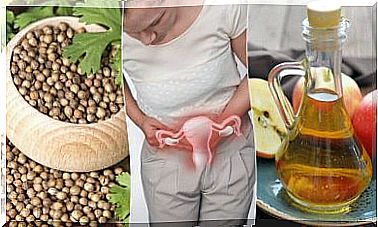Impacted Wisdom Teeth: Symptoms And Treatment
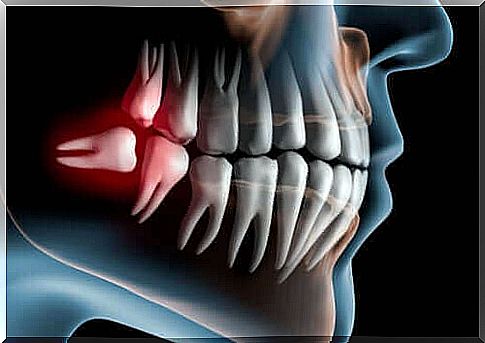
The back molars are better known as wisdom teeth. They grow in late adolescence to early adulthood, between 17 and 25 years of age. What happens if a dentist diagnoses them as ‘impacted’ wisdom teeth and what are the symptoms?
However, there are situations where the molar does not cut through the gums and cannot come out. So it is completely or partly stuck in the gums and we call it an impacted wisdom tooth.
Today’s article will describe how this condition can occur and also talk about its symptoms and complications. You also read how dentists deal with this problem.
Characteristics of impacted wisdom teeth
As we mentioned above, wisdom teeth are the last to erupt at the back of the oral arch. There are a total of four picks. The point is that there is often no room for them to emerge and so they are trapped and this results in an impacted wisdom tooth.
Moreover, in a number of cases there is no sign at all that they are going to break through. In other cases, only part of the molar may erupt, but part of the crown remains below the gumline, while part of it is exposed in the oral cavity.
Symptoms of impacted wisdom teeth

Some cases of these are asymptomatic and patients will not know about them until after a dentist’s diagnosis. However, the following symptoms can manifest with impacted wisdom teeth:
- There may be pain in the area where the molar is stuck or discomfort in the ears and jaw.
- Swelling of the jaw, an enlargement of the area where the affected molar is located, this often occurs when there is an infection.
- Food stays between the molar and the gum tissue that covers it when the molars are partially impacted (part of the molar comes out while the rest remains under the gum). This makes oral hygiene more difficult and bacteria and food accumulate under the gums. It often causes inflammation, pain and a foul odor.
- The gums become swollen, red and bleed.
- There is bad breath and a bad taste in the mouth.
- Finally, there is difficulty opening the mouth.
So see a dentist as soon as possible if you experience any of these symptoms in your mouth, as they could be due to impacted wisdom teeth.
Causes of impacted wisdom teeth
The main cause of impacted wisdom teeth is the lack of space to erupt normally. The molar remains in the bone because there is no room to break through.
The retention can be total. The molar then remains in the bone and does not penetrate the gums at all. Partial retention happens when some of it remains in the bone.
Another reason for this abnormality can be misalignment of the molar in the bone, which prevents rupture. This is because the molar touches other anatomical structures, preventing it from breaking through in the mouth.
For example, if the molar is horizontal or oblique, it will grow against the adjacent molar. The molars can also be turned inward or towards the cheeks or be completely upside down.
These abnormal alignments make proper breakthrough impossible and give rise to retention. A number of factors increase the risk of impacted wisdom teeth. For example, if you are between 17 and 25 years old and if you have a small lower jaw.
The diagnosis of impacted wisdom teeth
The diagnosis of an impacted wisdom tooth is made by a dentist after a clinical examination that may include taking X-rays. They also take into account the reported symptoms and manifestations they observe while exploring the oral cavity.
X-rays confirm the presence of the molar held in the bone. They also reveal any lesions in the teeth and surrounding bone tissue.
Therapy
The treatment of impacted wisdom teeth largely depends on whether or not symptoms are present and how they affect a person’s quality of life.
Asymptomatic situation
There are times when this condition does not cause discomfort in the mouth. In that case, dentists can choose from two alternative approaches. These approaches are:
- Wait and see attitude. The choice is made to keep an eye on the impacted molars and to leave them in the oral cavity. Their reasoning is that a molar that does not cause problems does not require surgery. There is always the possibility of extraction if problems arise in the future.
- Preventive extraction. A number of professionals recommend extraction of stuck molars to avoid potential problems. They do this to prevent future complications.
However, there is not enough evidence or research on these approaches to support or advise against either approach. It is therefore up to the dentist and the patient to make a choice.
sore mouth

The dentist will remove the affected tooth if it causes unpleasant symptoms. This type of surgery is an outpatient procedure that is performed in the dental office and takes between 30 and 60 minutes.
During the procedure, after anesthetizing the patient, the dentist will cut the gums that cover the molar. He will then remove the molar, if possible in whole or in fragments, as the case may be. The wound is then sutured.
The dentist will indicate any necessary post-operative actions to promote healing, such as rest, cold compresses, anti-inflammatory medications or antibiotics, and a gentle diet to recover properly and prevent complications.
The patient should return to the dentist a week after the procedure so that they can remove the stitches and check the wound. Minor bleeding, pain, bruising and swelling in the area, and difficulty opening the mouth are common symptoms after wisdom tooth surgery.
Alveolitis, infections, injuries to adjacent teeth, jawbone, nearby nerves, sinuses or temporomandibular joint are possible complications that occur rarely (link is spanish) and require immediate attention.
In addition, see a doctor as soon as possible if there is severe pain that does not go away, or if you experience numbness or paralysis of the tongue, or if you experience difficulty breathing.
Complications of impacted wisdom teeth
Impacted wisdom teeth make good oral hygiene difficult because food debris gets trapped and bacteria begin to multiply in the area. In general, this problem can cause the following complications:
- Difficulty cleaning the back of the mouth properly. This promotes the accumulation of bacteria and food residues. This is a predisposing factor for the development of cavities in these molars.
- The bacteria that accumulate between the tooth and gums can lead to infections and abscesses.
- In addition, the pressure exerted by the wisdom tooth can lead to crowding and overgrowth of the other teeth. In addition to the extraction of wisdom teeth, orthodontic treatment will be needed to solve this problem.
- Damage to other dental elements when the affected wisdom tooth exerts pressure against the adjacent molar. This is because it can affect the tissues and cause inflammation, resorption or mobility of this molar. It also leads to infection in the area and can affect nearby molars.
- The molars still in the bone are surrounded by a sac and the persistence of this structure can lead to fluid buildup and form a cyst which in turn can damage the maxillary bone, teeth and nerves.
- The buildup of bacterial plaque in the area due to the difficulty of brushing properly promotes inflammation of the gum tissue.
A number of dentists recommend extraction of affected wisdom teeth, due to the possibility of said complications, even if the impacted wisdom teeth do not cause any symptoms.
Early dental visits are essential
There is no way to prevent an impacted wisdom tooth. However, if you go to the dentist every six months, you can monitor the growth and emergence of these molars. In general, regular dental appointments ensure that any dental problems are checked and detected early.
Impacted molars can change a person’s quality of life, but they can also go unnoticed. A number of cases do not require treatment, but others require surgery to correct or prevent any problems they cause.
The recommendation is to take action as soon as possible when the wisdom teeth need to be extracted. Surgery is usually less difficult in young patients because the roots are not yet fully developed. However, the long, curved roots and compact stiff bone can make extraction difficult in adults.
